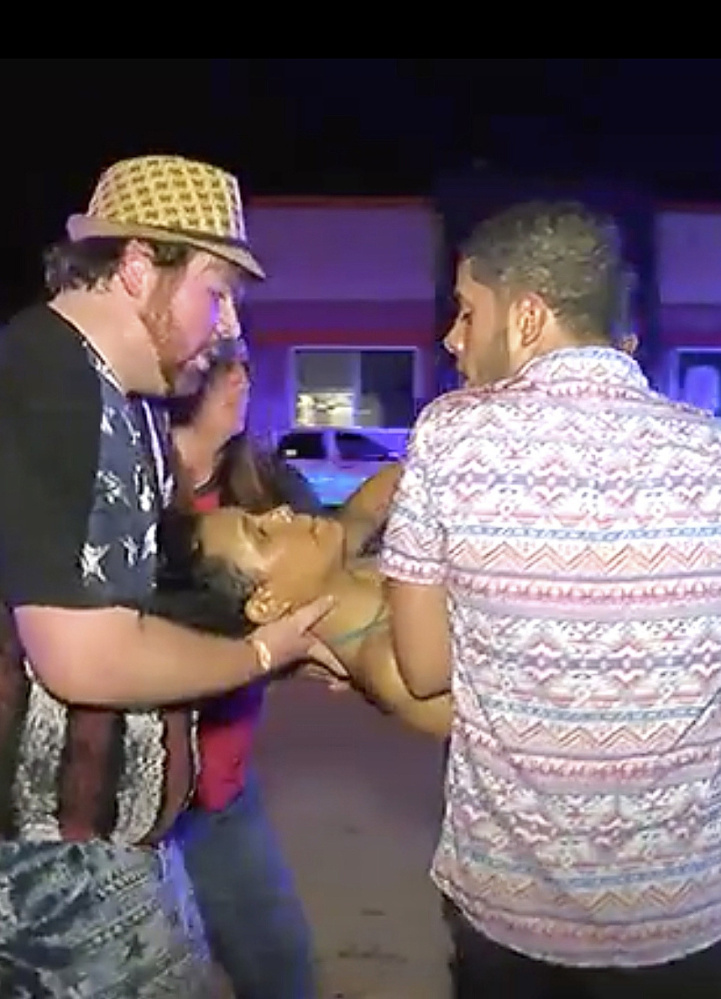YARMOUTH — Suddenly, 49 has become the magic number in our country when it comes to the gun control debate. Forty-nine is the number of people who were tragically killed in Orlando, Florida, on June 12, and that number has rapidly become what we’ve zeroed in on and immortalized as our nation continues its increasingly innocuous dialogue on guns and violence.
Forty-nine celebrities have gathered to speak out for the 49. Funds have been set up to provide money to the 49 families of the 49 murdered in the theme park capital of the world. The cost of the caskets and headstones for the 49 was raised within the first 49 hours following the incident.
This is all kind and lovely and truly our country at its best. But when we step past the Orlando magic and look at reality, 102 people were shot at the Pulse nightclub June 12, and while 49 died, 53 people were shot and lived.
FORGOTTEN VICTIMS
For the 53, there are no rock stars singing their praises, no funds set up to help with their healing and no one marching in parades in their honor. The 53 who were shot and lived have been swept under the rug rendered meaningless by the media, our lawmakers and the gun control community.
In the United States, we keep count of and honor the people who die – in the past 10 years, over 280,000 Americans have been killed in shootings. However, there is no official count of people who survive their injuries.
People who are shot and survive their injuries aren’t the people you see on TV after a shooting, dressed up for news conferences or appearing on daises with presidential candidates or at televised funerals.
While the count isn’t clear, one thing is for sure: Shootings can create chaos and instability for survivors. They lose jobs because they can’t do them anymore and in turn lose their health insurance. Marriages fall apart and their children are forced to live on an emotional and financial roller coaster. Surviving means facing a new now, a life with a disability and trauma – often resulting in post-traumatic stress disorder – that was never planned for.
I know because all of these things happened to me.
On July 28, 2006, I was wounded in a workplace shooting. I was 17 weeks pregnant at the time, and my son was born 6½ weeks premature.
Though I had been shot at work, my employer cut off our health insurance. I was fired because I was too afraid to return to the building where I had been shot – a place that I escaped covered in blood, forced to step over my best friend’s dead body in order to get to the door and get out.
I lost everything in bankruptcy court and in a bitter divorce. I felt the shame and social stigma of having to put my son on Medicaid and apply for financial assistance.
This is what happens to people who live through shootings. Our lives are turned upside-down and irrevocably changed forever.
When you are shot, you are brought to the hospital, have your injuries treated and are discharged, usually with a prescription for pain medications and a pat on the back – and that’s all.
We need to find a way to be at our best for everyone, to create a safety net to provide every shooting survivor with support, information and kindness so that no survivor, or their family, is alone, forgotten or not counted.
NEW SYSTEM NEEDED
The U.S. Department of Health and Human Services needs to create a permanently funded system so that shooting survivors and their families are fast-tracked through their systems and can immediately access health insurance, housing assistance and financial assistance to keep themselves and their families afloat.
Hospital staffers need to be trained in accessing these systems for shooting survivors so that things are in place before a person leaves the hospital, and community groups need to collaborate with hospitals so that together, they all form the safety net that survivors need.
It’s time to shift the paradigm for how we look at shootings from just mourning the lives of those killed to helping and honoring those who survive.
There is room to do both. For all 102 people shot in Orlando – and hundreds of thousands of others in the U.S. – it’s too late for tighter gun control laws, but it’s not too late to build a safety net and support system to rescue those who survive the menace of gun violence.
Send questions/comments to the editors.



Success. Please wait for the page to reload. If the page does not reload within 5 seconds, please refresh the page.
Enter your email and password to access comments.
Hi, to comment on stories you must . This profile is in addition to your subscription and website login.
Already have a commenting profile? .
Invalid username/password.
Please check your email to confirm and complete your registration.
Only subscribers are eligible to post comments. Please subscribe or login first for digital access. Here’s why.
Use the form below to reset your password. When you've submitted your account email, we will send an email with a reset code.